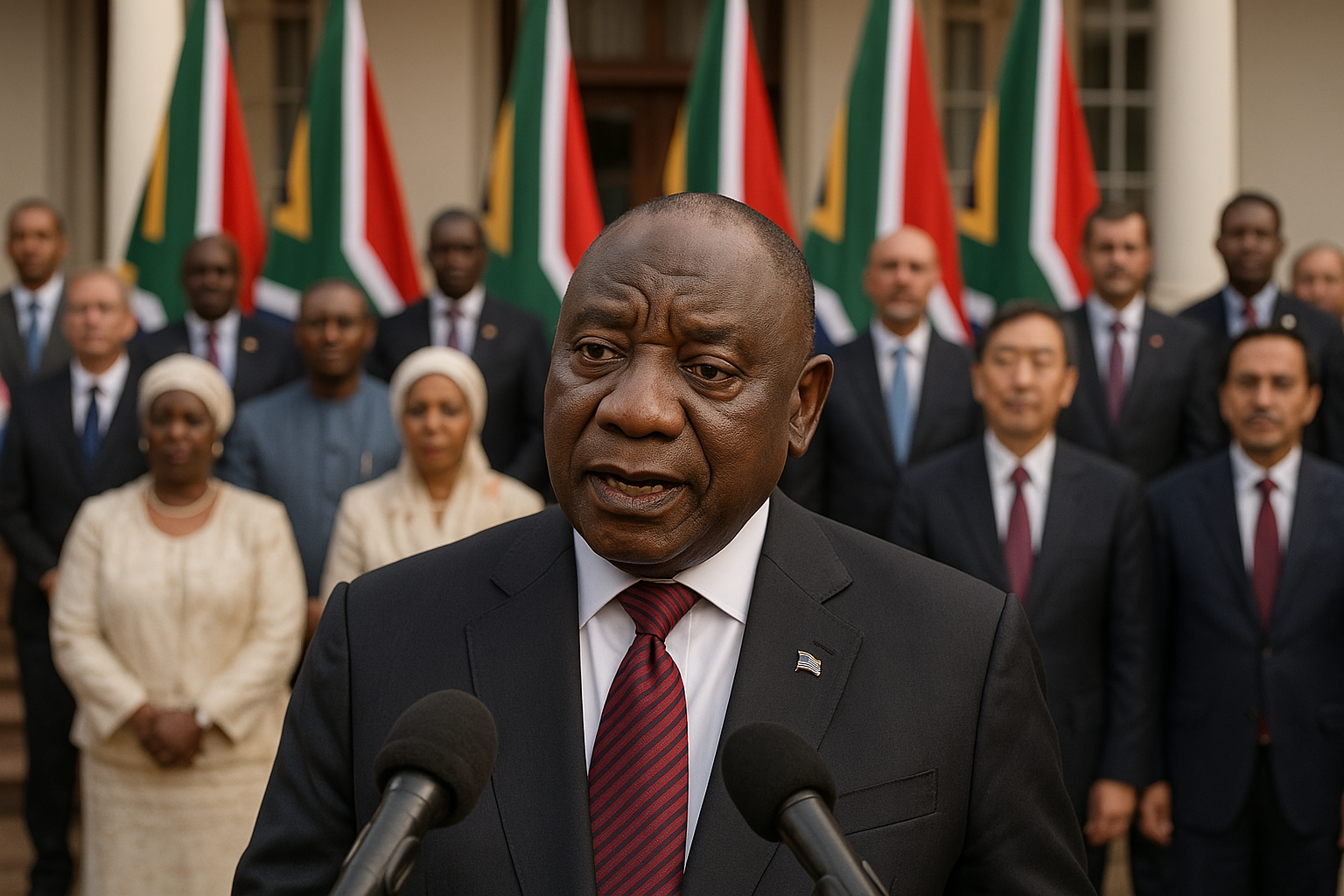President Ramaphosa: Economic Transformation Is a Constitutional Imperative
“Our Constitution reflects the promise we made to one another and to future generations to redress the injustices of our past and realise the full potential of our country,” said President Ramaphosa.

- Country:
- South Africa
In a powerful reaffirmation of South Africa’s constitutional values, President Cyril Ramaphosa has called on the nation to recommit to the cause of economic transformation and empowerment of previously disadvantaged groups. Through his weekly newsletter released on Monday, the President emphasized that Broad-Based Black Economic Empowerment (BBBEE) is not merely a policy preference—it is a constitutional obligation, rooted in the collective promise made by South Africans to rectify the deep-seated injustices of apartheid.
Empowerment as a National Imperative
“Our Constitution reflects the promise we made to one another and to future generations to redress the injustices of our past and realise the full potential of our country,” said President Ramaphosa. He emphasized that economic empowerment of black South Africans, particularly those previously excluded from economic participation, is fundamental to building a just and equitable society.
The President made it clear that broad-based empowerment is not an optional or politically motivated undertaking, but a constitutionally enshrined necessity that underpins the country’s developmental framework.
Progress in Economic Transformation
Citing recent data from Statistics South Africa, President Ramaphosa noted tangible gains in black economic empowerment over the past two decades:
-
From 2006 to 2023, black African households saw a real income growth of 46%, while coloured and Indian households experienced growth of 29% and 19%, respectively.
-
Ownership patterns are evolving, with a significant rise in businesses owned by black South Africans and women.
-
There have also been improvements in management control, enterprise development, and skills development among historically disadvantaged populations.
Persistent Inequality Remains a Challenge
Despite these strides, President Ramaphosa acknowledged that structural inequalities persist. He pointed to the stark reality that white households still enjoy incomes nearly five times higher than black African households, highlighting the enduring legacy of apartheid-era exclusion.
“This is the gulf we must close through deliberate and sustained efforts to expand opportunity,” he asserted.
President Ramaphosa strongly rejected the criticism that transformation efforts like BBBEE are reverse discrimination or economic burdens. Instead, he declared that “transformation is not a favour. It is a necessity,” and cautioned against any move to weaken or dismantle such policies.
Growth and Transformation: Not Mutually Exclusive
Addressing the frequently voiced concern that economic transformation hampers growth, the President unequivocally stated that growth and transformation are not contradictory goals. “Economic growth without transformation entrenches exclusion, and transformation without growth is unsustainable,” he noted.
He further challenged the private sector to see BBBEE not as a compliance burden, but as a strategic investment in long-term national prosperity. Transformation, he emphasized, fuels broader participation, innovation, and ultimately, sustainable economic resilience.
Driving Empowerment Through Policy and Funding
To accelerate transformation, the government is reinforcing key initiatives:
-
Black Industrialists Programme: Supporting the rise of competitive, black-owned enterprises, particularly in manufacturing, green industries, and technology.
-
Transformation Fund: A new funding mechanism aimed at assisting emerging black entrepreneurs and startups, especially in high-impact sectors.
-
Access to Finance: The President underscored the urgent need for affordable and inclusive lending. While development finance institutions play a role, private banks must rethink their lending practices to support black-owned businesses at scale.
“There is a critical need for black-owned businesses to access funding on affordable terms. Private banks have the resources to make the greatest impact,” said Ramaphosa.
Private Sector’s Role in National Transformation
The President’s message was also a call to the private sector to go beyond scorecard compliance. “The private sector must act deliberately to empower many more black-owned businesses,” he said. He encouraged industry leaders to incorporate transformation as a core business ethos, particularly as South Africa embarks on industrial expansion in sectors like green hydrogen, electric mobility, and localised manufacturing.
As the country invests in infrastructure development, energy transition, and economic reindustrialisation, Ramaphosa stressed that transformation must remain the central principle guiding all policy and investment decisions.
A Call to National Unity and Shared Growth
Concluding his address, President Ramaphosa called on all South Africans—especially those in business and finance—to renew their commitment to transformation. “Let us move forward with greater urgency, unity and ambition, to build a South Africa where all can truly share in the country’s wealth.”
He reiterated that transformation is about building a resilient, inclusive, and just economy that serves all South Africans—not just a privileged few.
Looking Ahead
This call from the highest office in the land comes at a time when South Africa faces the dual challenge of rebuilding its economy and deepening social justice. The government’s renewed focus on equitable growth, access to capital, and real inclusion promises a bold path forward—one that honors the spirit of the Constitution and empowers future generations.
ALSO READ
Cal HC grants bail to murder accused citing Article 21 of Constitution over trial delay
Brazil's Plan to Boost Economic Growth Through Credit Expansion
Battle for Ludhiana West: Constitution vs. Dictatorship?
inDrive Champions People-Driven Mobility to Boost Economic Growth in SA
RBI's Bold Rate Cut: A Boost for Economic Growth Amid Global Challenges










